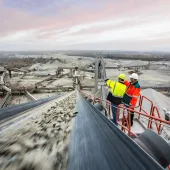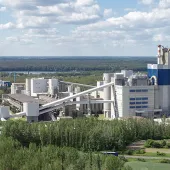Aggregate Industries welcome new British Standard for concrete
Company hosting series of educational webinars focusing on the recent changes to the British Standard
AGGREGATE Industries have welcomed the newly revised British standard for concrete, BS 8500, which, they say, signifies a substantial leap forward for the construction industry in the UK. The upcoming changes are set to transform the industry, broadening the spectrum of available low-carbon mixes for designers, contractors, and manufacturers.
By increasing the cementitious options available, the introduction of additional multi-component blends will open the door for scalable, low-carbon options that have the potential to become the default solution, as the standard will now allow additional Portland-composite cements (CEM II/C-M) as well as other composite cements (CEM VI).
The changes will also address aspects such as properties of fresh and hardened concrete, composition limitations, delivery procedures, and conformity criteria – ushering in a new era of sustainable concrete production practices. Aggregate Industries are currently hosting a free webinar series on the recent changes to the standard, specifically delving into the impacts on concrete specification.
Aggregate Industries’ commercial director, Mark Hickingbottom, said: ‘We applaud the newly revised BS 8500 as a significant advancement for the construction industry and we’re ready to assist customers in capitalizing on these new changes. It not only broadens the array of available low-carbon concrete mixes, but also positions Aggregate Industries at the forefront of this sustainable shift.’










